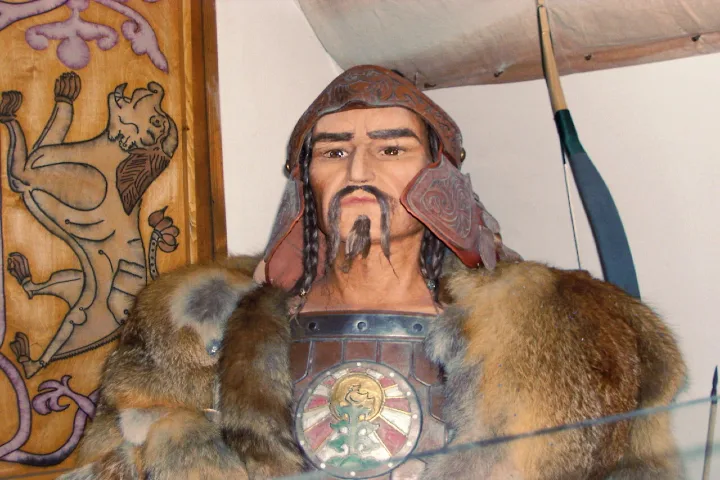

While historians portray Attila the Hun as a barbarian who plundered for wealth, new study suggests it was for the survival of his people that he attacked Roman provinces (Pic. Courtesy wikimedia commons)
Events of the past can be written or narrated from one’s own perspective. For example, Huns are seen as ruthless barbarian, yet as per a report in sciencealert.com, a new study suggests that it was not lust for gold but hunger that made them assault eastern Roman areas.
Telling evidence of this comes from the growth lines of oak trees in Czech Republic and Bavaria that have recorded the Great Hungarian plain having been affected by continuous dry summers. Archaeologists of the University of Cambridge said that between the period 420 and 450 CE, the Eurasian steppes people faced turbulent climatic conditions.
This forced the Huns to move back and forth from settled farming to nomadic life of herding in search of fresh pastures. Remains of ancient teeth also point in this direction as it suggests many alterations in diets during the lifetime of individuals making them adapt to whatever food was available.
Highlighting this Susanne Hakenbeck an archaeologist said: “If resource scarcity became too extreme, settled populations may have been forced to move, diversify their subsistence practices, and switch between farming and mobile animal herding. These could have been important insurance strategies during a climatic downturn.”
Among the Huns their leader Attila who assumed power in 430s is accused of violent rampage and raids on Romans and demanding more land and gold. Yet, it is vital to know that his attacks synchronised with increasing drier spells in the Carpathian Basin.
Scholars from Cambridge in the study wrote: “If the dating of these events is reliable, then the most devastating Hunnic incursions, in 447, 451, and 452 CE, happened during extremely dry summers. This raises the question of whether altered environmental affordances provoked adaptations to subsistence, economy, and perhaps even social organization.”
Further study is required to collaborate this theory correlating aggressiveness on part of Huns and drastic climatic changes in their region.
The study’s authors feel that it was Attila’s final endeavour to save his community. Records of that period state that he once asked Romans for land along the Danube River and this could be attributed to getting hold of grazing grounds for the horses, sheep and camels.
Even though the discredited depiction of Attila and Huns continues to exist, the tree rings provide a more objective proof than history by people coloured by their biases.
Summing up the study Hakenbeck commented: “Climate alters what environments can provide and this can lead people to make decisions that affect their economy, and their social and political organization. Such decisions are not straightforwardly rational, nor are their consequences necessarily successful in the long term.”
Details of this study were published in the Journal of Roman Archaeology.
India and Maldives on Friday announced the initiation of negotiations for the launch of a…
Prime Minister Narendra Modi on Friday said that India has always been a close friend…
In a significant crackdown on objectionable digital content, the Ministry of Information and Broadcasting (MIB)…
India is signalling greater openness to Chinese investment in electronics manufacturing as bilateral relations show…
Defence Minister Rajnath Singh on Friday announced that India has conducted the successful flight trials…
Prime Minister Narendra Modi arrived in Maldives on Friday as a part of his second…